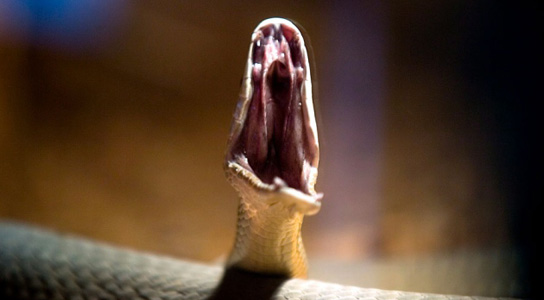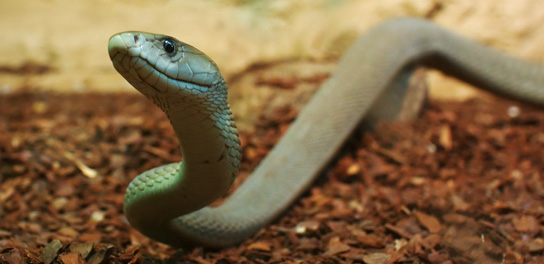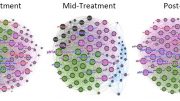
Black mamba snake
The venom of the black mamba snake can kill humans within 20 minutes, but among those deadly compounds are two snake proteins, called mambalgins, that can block pain in mice as effectively as morphine and with fewer side effects.
The researchers published their findings in the journal Nature. Mambalgins were discovered as part of a search for alternative pain medication to opiates, since patients can develop a tolerance to opiates, requiring higher doses of the drugs over time. Opiates also cause side effects such as nausea, constipation, and drug dependency.

Dendroaspis polyepis was tested among 50 other animal venoms in the hope that there would be some kind of compound that would alleviate pain. Mice injected with mambalgins could withstand hot water on their tails and paws twice as long as untreated animals. The proteins also reduced hypersensitivity to pain following tissue inflammation. Over a 5-day testing period, mice developed a tolerance to mambalgins, but it was less pronounced than with traditional opiates. Mambalgins also didn’t slow the mice’s breathing rates.
Mambalgins bind and inhibit molecules in the family of acid-sensing ion channels (ASICs). These ion channels form pores in the membranes of neurons and have been implicated in pain transmission, although their exact role remains poorly understood.
Mambalgins seem to inhibit different subtypes of ASIC depending on the injection sites, offering several potential targets for drug developments. Whether the mambalgin molecules become clinically viable is not yet determined. Early tests suggest that mambalgins block some human ASICs in vitro.
Venom proteins from sea anemones, spiders, and scorpions have been used in biomedical purposes. Prialt is one that mimics the venom of the cone snail (Conus magus).
Reference: “Black mamba venom peptides target acid-sensing ion channels to abolish pain” by Sylvie Diochot, Anne Baron, Miguel Salinas, Dominique Douguet, Sabine Scarzello, Anne-Sophie Dabert-Gay, Delphine Debayle, Valérie Friend, Abdelkrim Alloui, Michel Lazdunski and Eric Lingueglia, 3 October 2012, Nature.
DOI: 10.1038/nature11494








Be the first to comment on "Proteins from Black Mamba Venom Could Yield New Painkillers"